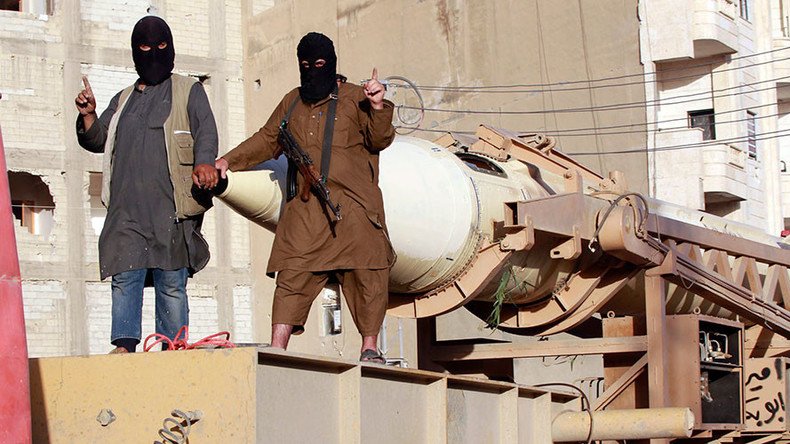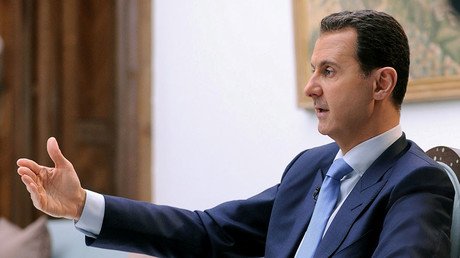US actions to weaken Syrian govt will empower ISIS – UK consultancy

Any attempt to act against the Syrian government will make Islamic State and other terror groups in the country stronger, London-based consultancy IHS Markit said in a recent report, calling such situation an “inconvenient reality” for Washington.
Over the last 11 months, 43 percent of Islamic State (Is, formerly ISIS/ISIL) military actions carried out were against the Syrian government forces of President Bashar Assad, the open-source data gathered by IHS Markit’s Conflict Monitor revealed.
The US-backed “moderate opposition” accounted for 17 percent of IS fighting between April 1, 2016 and March 31, 2017, with the remaining 40 percent being the jihadists’ skirmishes with rivaling rebel groups.
“It is an inconvenient reality that any US action taken to weaken the Syrian government will inadvertently benefit the Islamic State and other jihadist groups,” Columb Strack, senior Middle East analyst at IHS Markit, said as cited by the company’s website.
Strack described the current state of events in Syria by comparing Assad’s forces “the anvil to the US-led Coalition’s hammer.”
“While US-backed forces surround Raqqa, the Islamic State is engaged in intense fighting with the Syrian government around Palmyra and in other parts of Homs and Deir al-Zour provinces,” he said.
According to the analyst, weakening the Syrian forces, which are already overstretched on a large front, may lead to the jihadists moving from the desert to populated areas in the west of the country, which endangers such cities as Damascus and Homs.
Strack believes that Deir ez-Zor is currently the main strategic goal for Islamic State, as capturing the largest city in eastern Syria would allow the group to gain “a new major population center from which to run the Caliphate” after losing Mosul and Raqqa.
According to IHS Markit, the area controlled by IS in Syria and Iraq has shrunk by almost 40 percent over the last two years.
The group, which used to reign over 90,800 square kilometers in January 2015, now holds around 48,500 square kilometers of land.
IS territorial “losses were largely driven by a greater commitment from the US to back the Syrian Democratic Forces, but also by major Syrian government advances east of Aleppo and around Palmyra,” Strack said.
READ MORE: 'Pentagon always has irrefutable proof to justify US aggression' – Russian MoD
IHS Markit is considered on the leading providers of information, analysis and solution, boasting over 50,000 customers in highest business and political circles.
Washington, which wants President Assad removed from power, has been backing the so-called “moderate opposition” with funds and weaponry for years. The rebel fighters received money, training, ammunition, including TOW guided anti-tank missiles, which was funded by the US, Saudi Arabia, Qatar and American allies.
The foreign support led to a surge of Islamist groups in the country as the “moderate rebels” were reported to have lost their weaponry to the jihadists from Islamic State and Jabhat al-Nusra or joined the ranks of the radicals voluntarily.
Meanwhile, on April 7, the Americans launched 59 Tomahawk missiles at the Syrian Shayrat airbase. The attack, which killed 14 people, mainly civilians, was a response to an alleged use of chemical weapons in Idlib province blamed by Washington on Assad without any investigation.
After the strike, White House spokesman Sean Spicer stressed: “We hold open the possibility of future action” against Syria.













